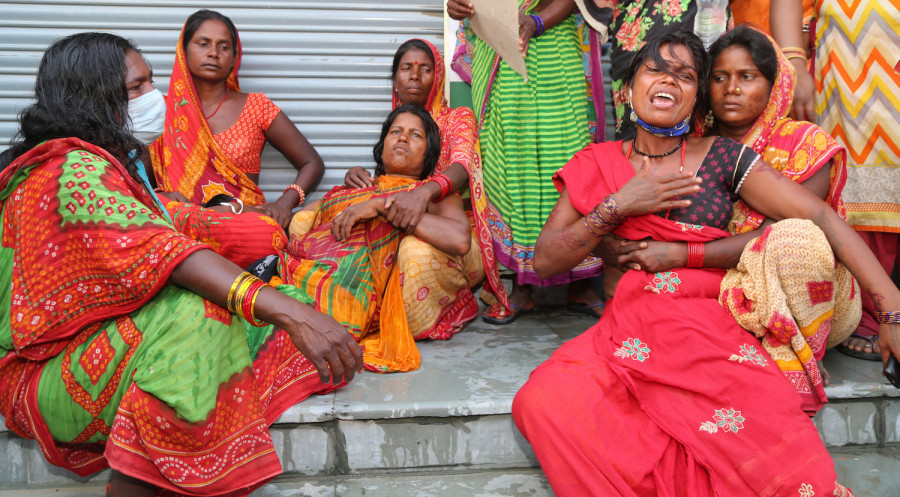National
Amnesty International paints bleak picture of rights situation in Nepal
Report calls Nepal out for custody deaths, police brutality, curbs on freedom and failure to probe conflict-era crimes.
Post Report
Nepali authorities have failed to carry out independent and credible investigations into several in-custody deaths suspected to have resulted from police torture, according to Amnesty International.
In its global report published on Wednesday, the human rights watchdog said police in different cases refused to investigate the custody deaths of detainees ruling them as suicides, despite the families of the deceased individuals claiming that their loved ones were tortured to death. At least six incidents of custody deaths were reported in 2020 across the country, prompting Amnesty International Nepal to appeal to the authorities to launch independent and impartial investigations.
Some of such incidents include the death of Shambhu Sada Musahar, 23, who was found dead inside the toilet of Sabaila Area Police Office in Dhanusha district in June last year. Police said he died due to kidney failure against the family’s claim that his death was a result of excessive torture while in custody.
Similarly, in July of that same year Raj Kumar Chepang, 24, died after allegedly being beaten up by security personnel inside Chitwan National Park.
“Although the 2017 Criminal Code criminalises torture and other ill-treatment, no one had been convicted under it by the end of 2020,” reads the report. “Several allegations of deaths due to torture were reported, particularly of Dalits and indigenous people.”
The report has also highlighted the excessive use of force by the security forces on peaceful protests.
In January last year, police detained human rights activists who were demonstrating justice for the victims of conflict-era crimes.
Security forces also tear-gassed protesters demanding investigations and accountability for the deaths of Dalits in Dhanusha in July.
Likewise, a man died and two others were critically injured in Mahottari when security forces opened fire at people who were protesting the rape and murder of a six-year old girl in November.
Despite serious reservation from different quarters, the government hasn’t withdrawn different bills registered in the federal parliament that curtail the freedom of expression, according to the report.
The Media Council Bill, the Mass Communication Bill and the Information Technology Bill are under consideration in the federal parliament.
“Dozens of individuals, including journalists, were detained for “spreading misinformation” or criticising the government in the context of the Covid-19 pandemic,” reads the report. “The Nepal Press Council shut down more than 30 news websites for “publishing false and fabricated news”.
Khem Thapaliya, editor-in-chief of Jaljala, a vernacular monthly,, Sajan Saud of eJhajhalko, an online portal, from Pokhara and Jitendra Maharjan, the editor of Nhugu Jwojoloppa, a Nepal Bhasa newspaper, were among those arrested by the authorities last year on various pretexts. They were released only after the Supreme Court order.
The report says the Nepal Special Service Bill endorsed by the National Assembly in May last year has included broad and vague provisions allowing intrusion on the right to privacy without judicial authorisation while the government has prepared Bill on Telecommunications giving authorities sweeping powers to conduct surveillance and collect and record information on individuals and organisations without adequate legal safeguards.
The global annual report also points out the failure towards delivering justice and reparation for thousands of victims of crimes under international law and human rights violations committed during the 1996-2006 armed conflict.
The Truth and Reconciliation Commission and the Commission of Investigation on Enforced Disappeared Persons, which together had collected more than 66,000 complaints of crimes committed by state security forces and armed opposition groups, failed to carry out effective and independent investigations.
“The government failed to amend the Enforced Disappearances Enquiry, Truth and Reconciliation Commission Act 2014 to bring it in line with international human rights law and standards, as repeatedly ordered by the Supreme Court,” read the report. “In January, the government finalised the appointment of new commissioners to the two commissions without adequate consultations with conflict victims and without amending the law allowing amnesties for serious crimes under international law.”




 13.12°C Kathmandu
13.12°C Kathmandu













